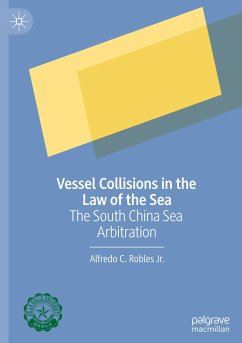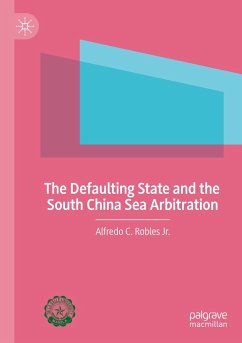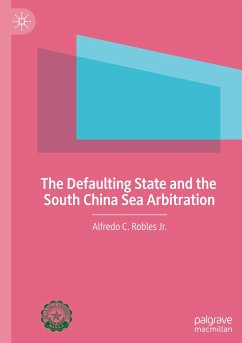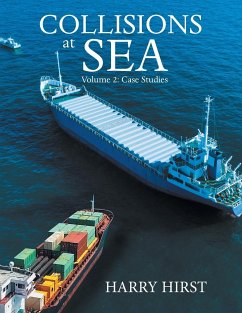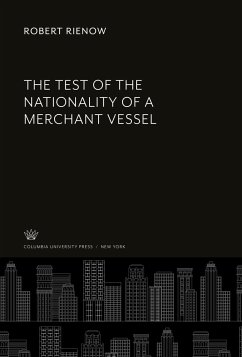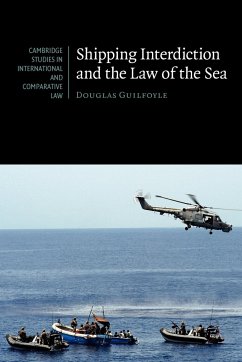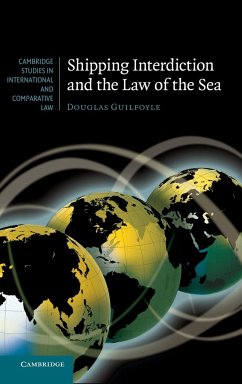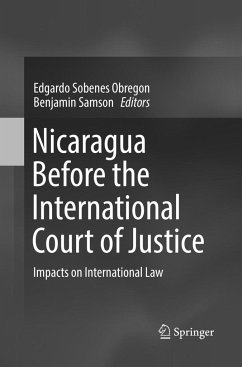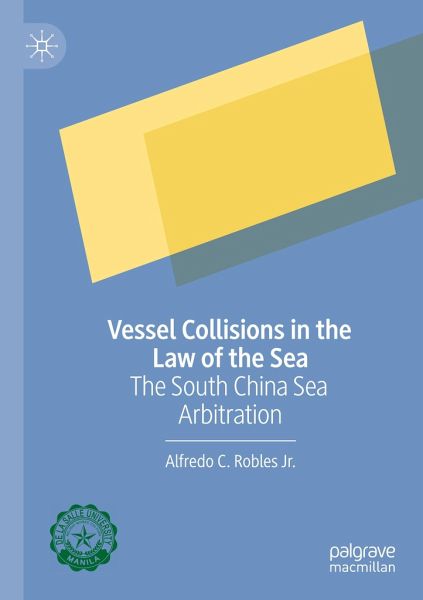
Vessel Collisions in the Law of the Sea
The South China Sea Arbitration
Versandkostenfrei!
Versandfertig in 6-10 Tagen
106,99 €
inkl. MwSt.
Weitere Ausgaben:

PAYBACK Punkte
53 °P sammeln!
This book focuses on the decision of the Tribunal in the South China Sea Arbitration that China had operated its law enforcement vessels in ways that created risks of collision with Philippine official vessels at Scarborough Shoal in April and May 2012. The book explains the International Regulations for Preventing Collisions at Sea (COLREGS) and the incidents in layperson's terms. It analyzes China's violations of the COLREGS on the basis of confidential Philippine documents declassified for the Arbitration, technical works by professional mariners, and the reports submitted by the navigation...
This book focuses on the decision of the Tribunal in the South China Sea Arbitration that China had operated its law enforcement vessels in ways that created risks of collision with Philippine official vessels at Scarborough Shoal in April and May 2012. The book explains the International Regulations for Preventing Collisions at Sea (COLREGS) and the incidents in layperson's terms. It analyzes China's violations of the COLREGS on the basis of confidential Philippine documents declassified for the Arbitration, technical works by professional mariners, and the reports submitted by the navigational safety experts to the Tribunal. It pays attention to Chinese post-arbitration critiques of the Tribunal 's decision, which it characterizes as rationalizations of collisions as instruments of Chinese foreign policy. It contrasts China's conduct with the practice of the US and Western European States, which mandate compliance with collision regulations even during law enforcement operations. Thebook draws on sources in five languages (English, French, German, Italian, and Spanish), and helps the reader understand the pattern of China's harassment of vessels from littoral and non-littoral States in the South China Sea as well as the absence of legal foundations for China's rationalizations of its behavior.





